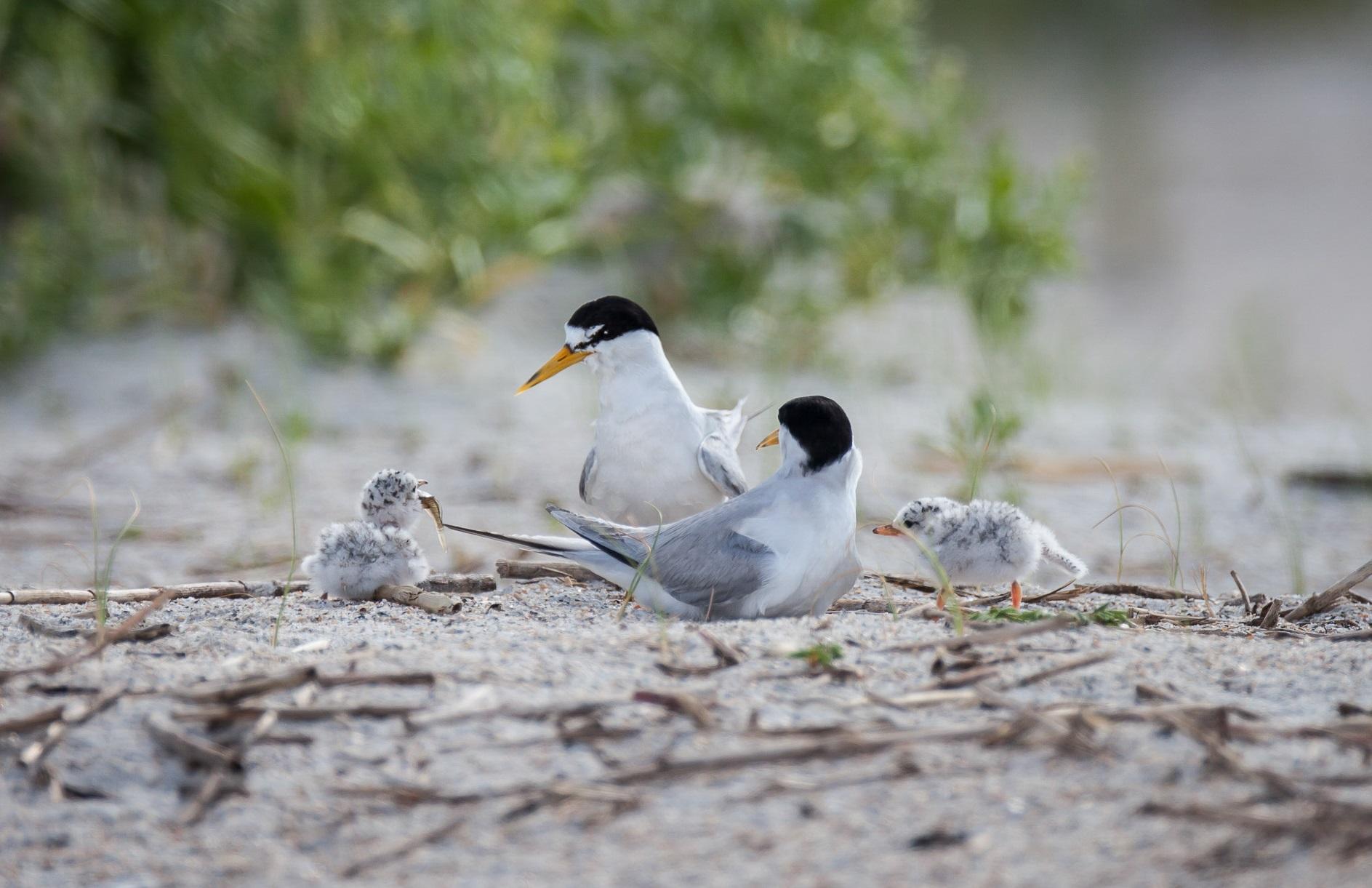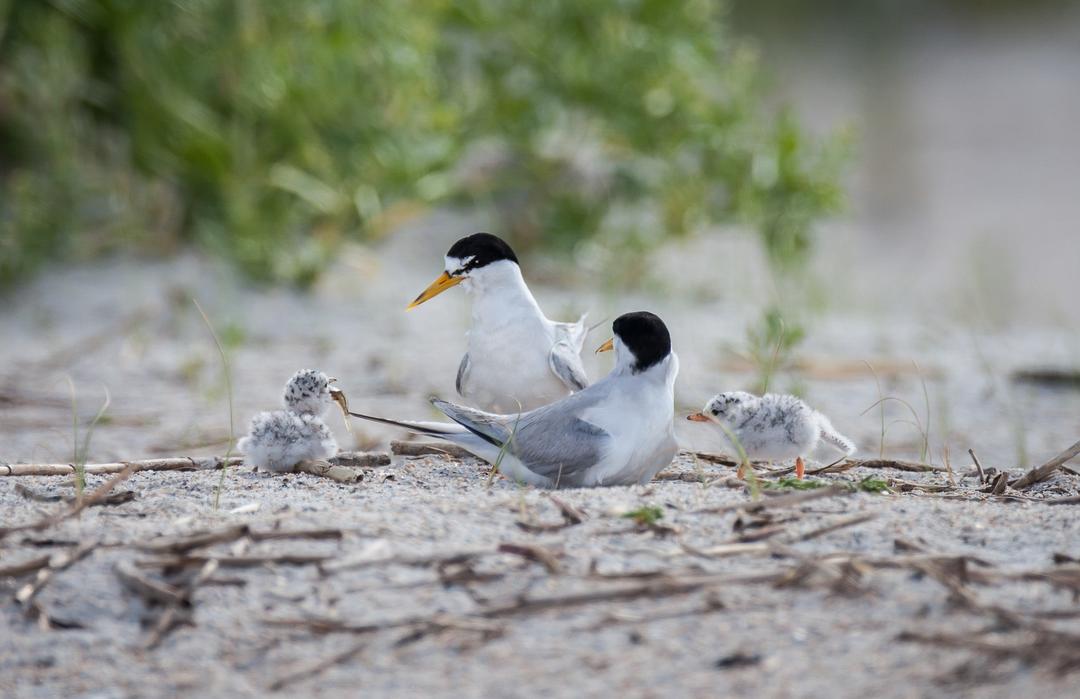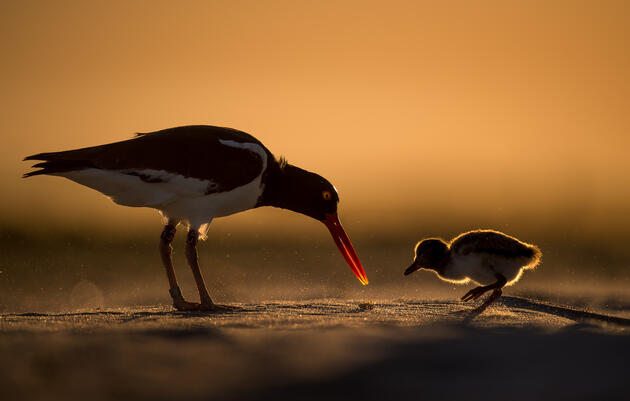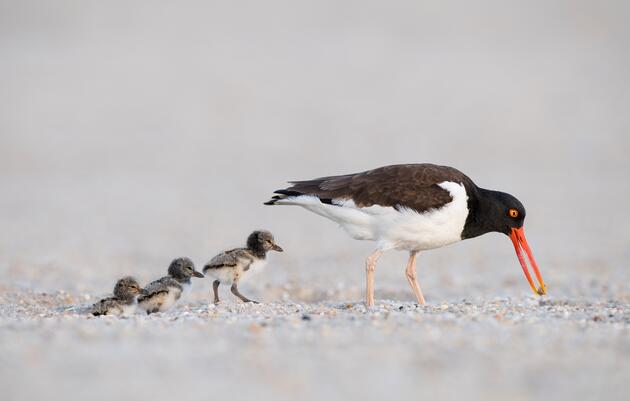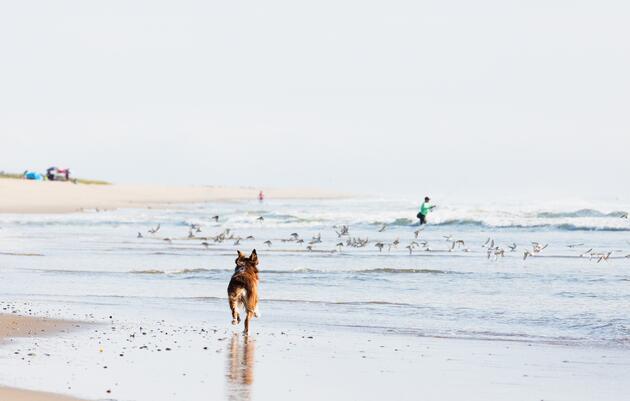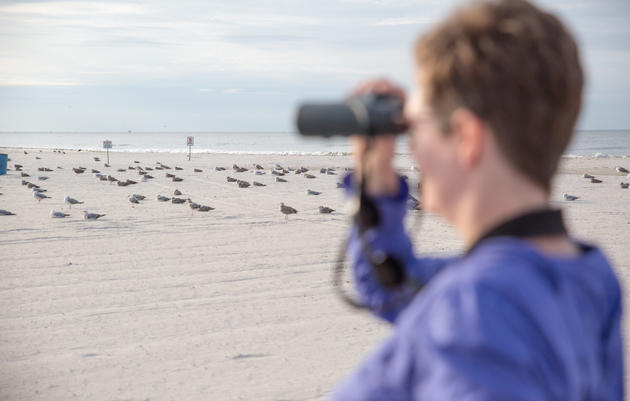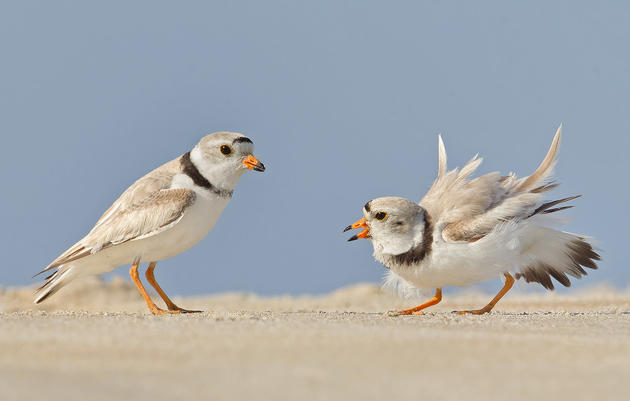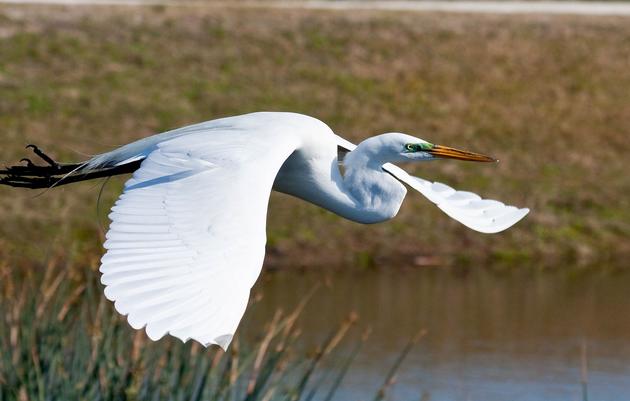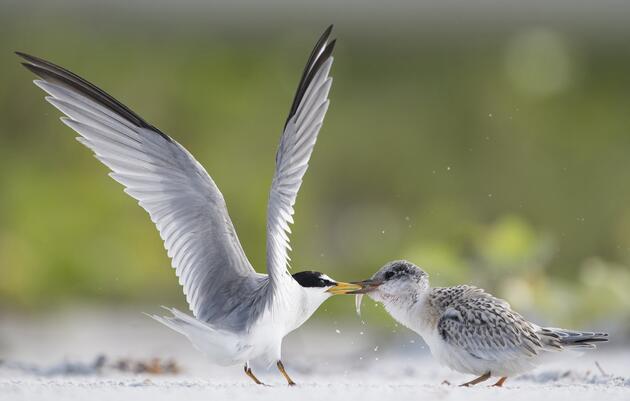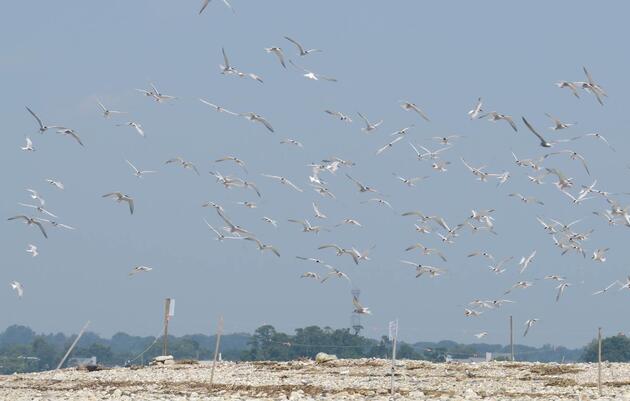In spring and summer, our Connecticut beaches and islands become a nursery for federally and state-protected birds like the Piping Plover, Least Tern, and American Oystercatcher.
These birds rely on us to “Share the Shore,” because our beach season is their nesting season. Every May–August, they hatch chicks that weigh less than a single scoop of ice cream!
Step One: Take the Be a Good Egg Pledge.
Tiny chicks face big obstacles, and one of the biggest is a lack of awareness.
People may not know, for instance, that walking too close to nesting sites (which are usually sectioned off with string fencing) can cause adults to abandon their nests. Or that even small, well-trained dogs can crush fragile eggs or scare off parents. By taking the Pledge, you're helping us understand how many people know how to #sharetheshore!
Step Two: Share the love.
One of the best ways to help is to volunteer in-person to monitor and survey nesting birds.
You can also share our messaging! We developed the Share the Love, Share the Shore campaign to help you spread the word.
Step Three: Read and share our resources below!
How to Know If a Shorebird Is Being Disturbed
Learn the signs of bird disturbance and what you can do to help beach-nesting birds.
Share the Shore "Take Action Toolkit" for Local Communities
Launch award-worthy programs and projects for birds and people.
Dogs on Beaches: Know Before You Go
To keep our beaches safe for shorebirds, we ask dog-walkers to visit alternative recreational spaces during the nesting season. Read on to find a dog park near you!
How to "Be a Good Egg" at the Beach
Make a difference and save a life by following a few simple steps
8 Ways to Help Piping Plovers
The protection of this threatened species starts with you
Sharing the Waterways: A Guide to Boating with Birds
Connecticut’s offshore islands provide critical nesting habitat for an array of birds. Here's how to avoid disturbing them.
How to Practice Safe, Ethical Shorebird Photography
Every photographer longs for that "perfect shot," but at what risk? Here are some best-practices to avoid endangering vulnerable birds.
Flying Drones Pose Danger to Threatened Birds
Not only do beach-nesting birds experience undue stress at the sight of a drone, they can also become seriously injured.
How you can help, right now
Get Involved
There are so many great ways you can get involved with Audubon Connecticut and make a difference for both the wildlife and the people who call Connecticut home.
Visit Our Centers
Connect with our nature centers in Greenwich, Sharon, and Southbury. Each unique center offers trails, educational resources, conservation opportunities, and more.
Support Us
Through land stewardship, science, education, and advocacy, Audubon Connecticut works across the state to preserve habitat and protect bird species that are of state, national, and global concern.

